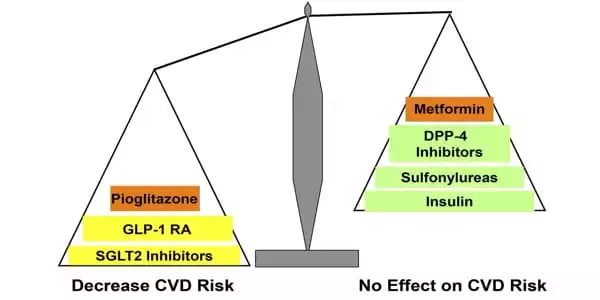An international panel of experts from four renowned diabetes research centers, including UT Southwestern Medical Center, reviewed current literature and recommends a pivotal shift in Type 2 diabetes treatment to prioritize obesity over glucose control. Obesity has been linked to the progression of diabetes. What’s new is that the primary approach to treating type 2 diabetes is to treat obesity as well as blood sugar levels.
“Obesity is known to contribute to the progression of diabetes. What’s new is that, rather than focusing solely on blood sugar control, we recommend that the primary focus of Type 2 diabetes treatment be on obesity management “Ildiko Lingvay, M.D., M.P.H., M.S.C.S., Professor of Internal Medicine and Population and Data Sciences at UT Southwestern, one of the nation’s top 25 hospitals for diabetes and endocrinology care, was the study’s first author.
According to the researchers, losing 15% or more of one’s body weight can have a disease-modifying effect in Type 2 diabetes, an outcome that no other glucose-lowering intervention can achieve. They note that the new focus would necessitate updating current treatment guidelines as well as extensive provider education. The panel’s recommendations were presented at the European Association for the Study of Diabetes conference and were published in The Lancet.
Obesity is known to contribute to the progression of diabetes. Medical researchers have reviewed current literature and are recommending a pivotal change in treatment of Type 2 diabetes to focus on obesity first and glucose control second.
Ildiko Lingvay, Professor of Internal Medicine and Population and Data Sciences at UT
The current approach to diabetes treatment is based on clinical studies from the 1980s, which discovered that lowering blood sugar results in fewer diabetes complications. According to Dr. Lingvay, these preliminary findings support treating blood glucose as the primary target.
“The problem with this approach is that it does not address the core problem and does not offer a chance to reverse the disease,” said Dr. Lingvay, who directs an active clinical research program in UT Southwestern’s Division of Endocrinology. “We recommend taking a proactive approach. Let’s start with the disease’s root cause: obesity.”

This latest discovery builds on Dr. Lingvay’s career-long research into the best ways to provide the most effective clinical care to Type 2 diabetes patients. Dr. Lingvay was a member of the first class of the Clinical & Translational Research Scholars Program at UT Southwestern, a rigorous multi-year program designed for clinical research fellows and junior faculty who are on track to obtain extramural grant funding and who show great promise toward becoming independently funded investigators. She went on to receive a Career Development Award from the National Institutes of Health to investigate the role of pancreatic triglyceride accumulation in beta-cell failure and Type 2 diabetes.
Type 2 diabetes, according to the American Diabetes Association, is a progressive disease caused by obesity or metabolic abnormalities. Diabetes affects more than 10% of the population in the United States, with 1.5 million new cases diagnosed each year.
Obese patients may benefit from bariatric surgery, but not all patients have access to this treatment option. “It is difficult to maintain long-term weight loss. Most lifestyle interventions result in six months of progressive weight loss, followed by a plateau and weight regain over one to three years “Dr. Lingvay added. “New weight loss medications, as well as those in development, will help patients succeed in long-term weight management.”
The researchers also emphasized the significance of advocating for insurance coverage that supports obesity and diabetes treatment, as well as working in public health to increase access to care and reduce disparities.
The authors’ disclosures are listed in the manuscript.
Although there is no cure for type 2 diabetes, studies show that some people can reverse it. You may be able to achieve and maintain normal blood sugar levels without medication by making dietary changes and losing weight.
This does not imply that you are completely cured. Type 2 diabetes is a chronic condition. Even if you are in remission, which means you are not taking medication and your blood sugar levels remain within a healthy range, there is always the possibility that symptoms will return. However, some people can go years without having any problems controlling their glucose levels or dealing with the health issues that come with diabetes.





